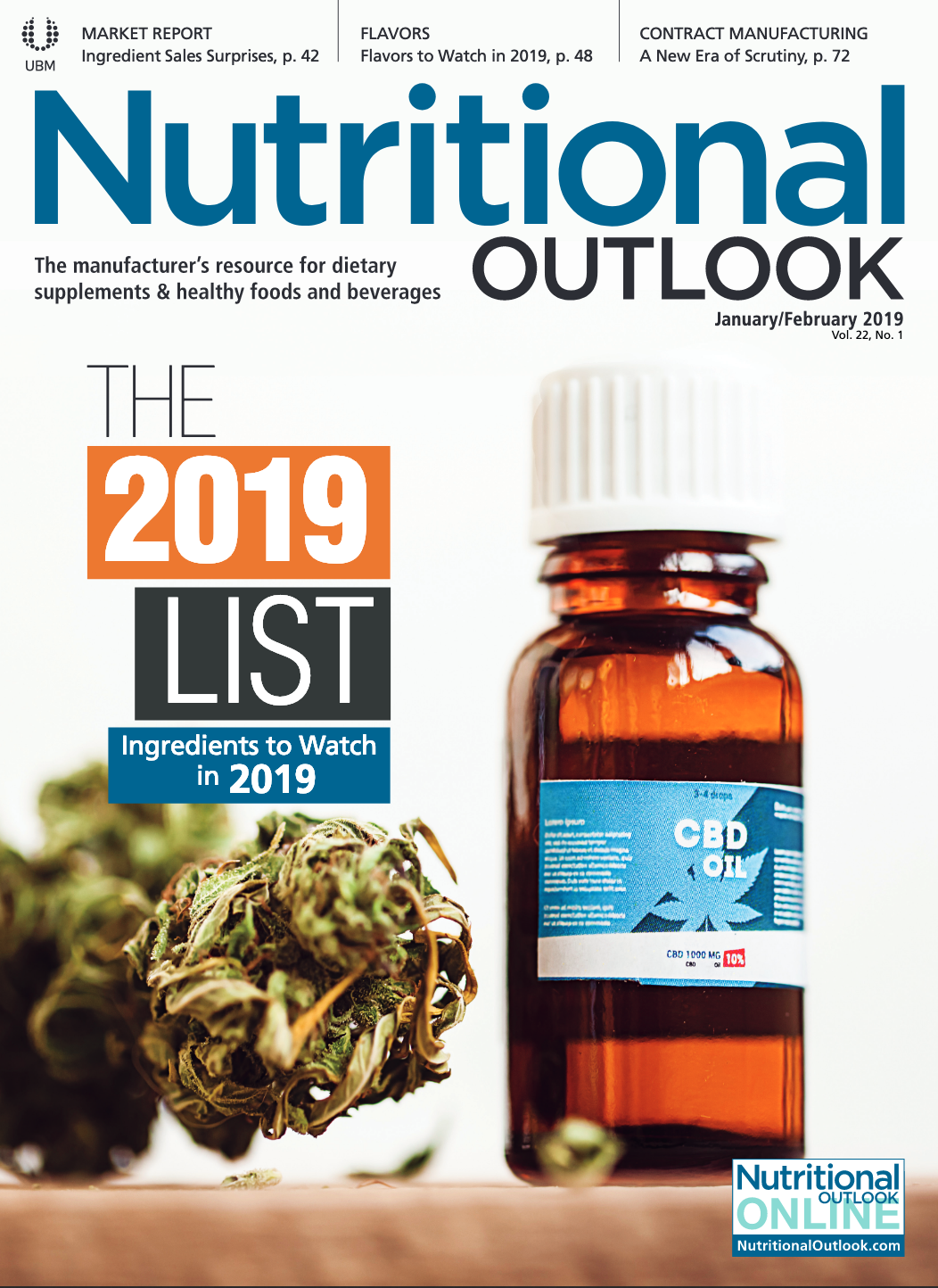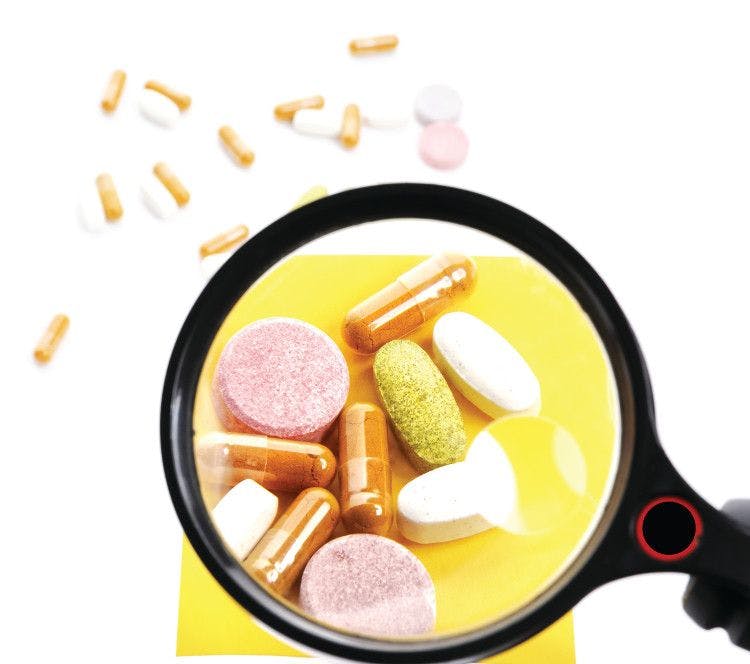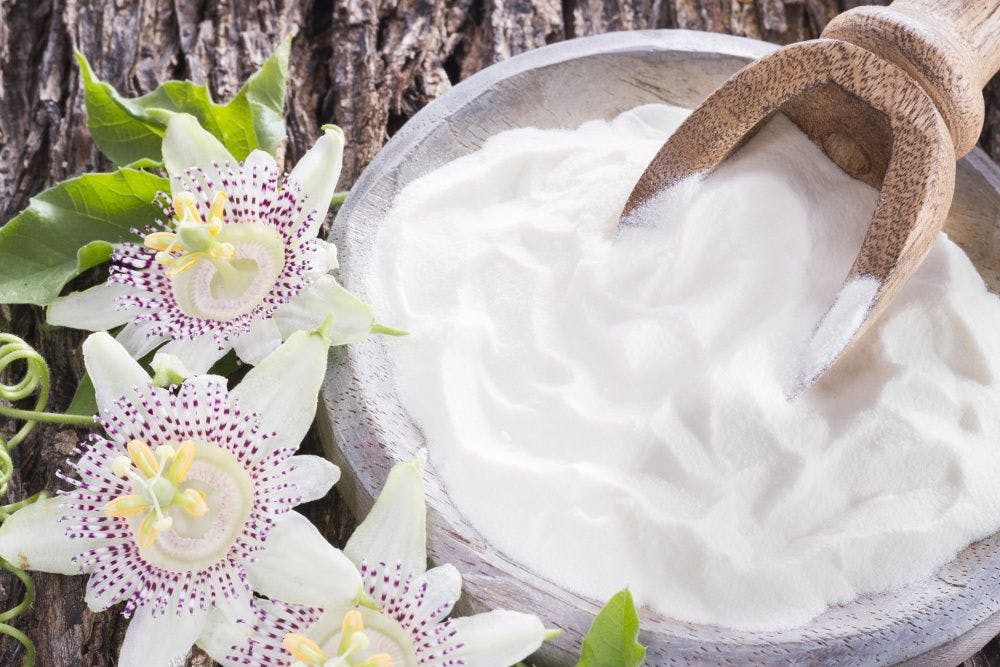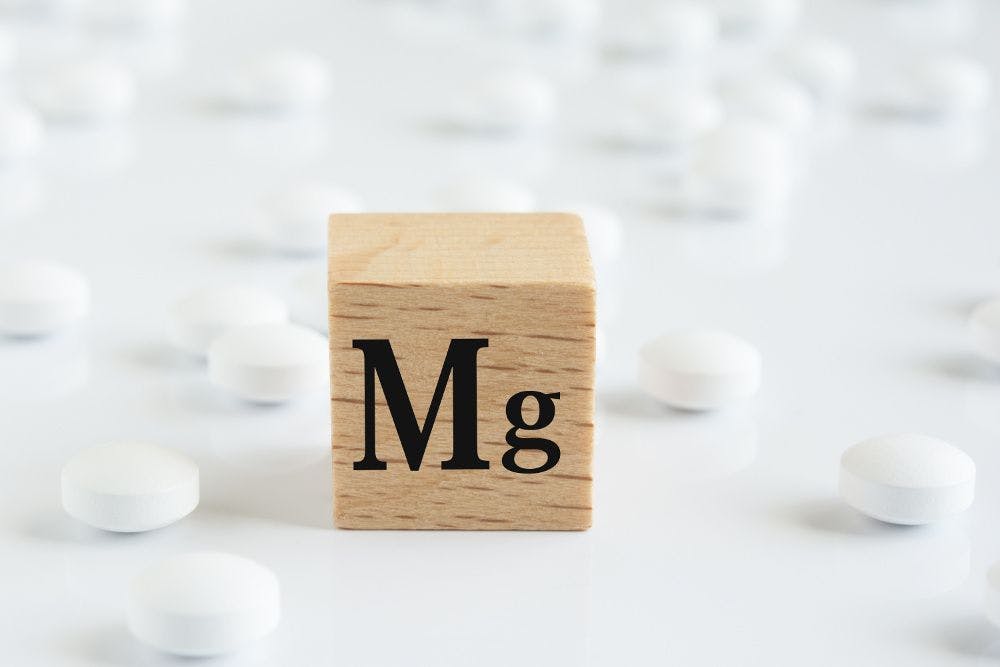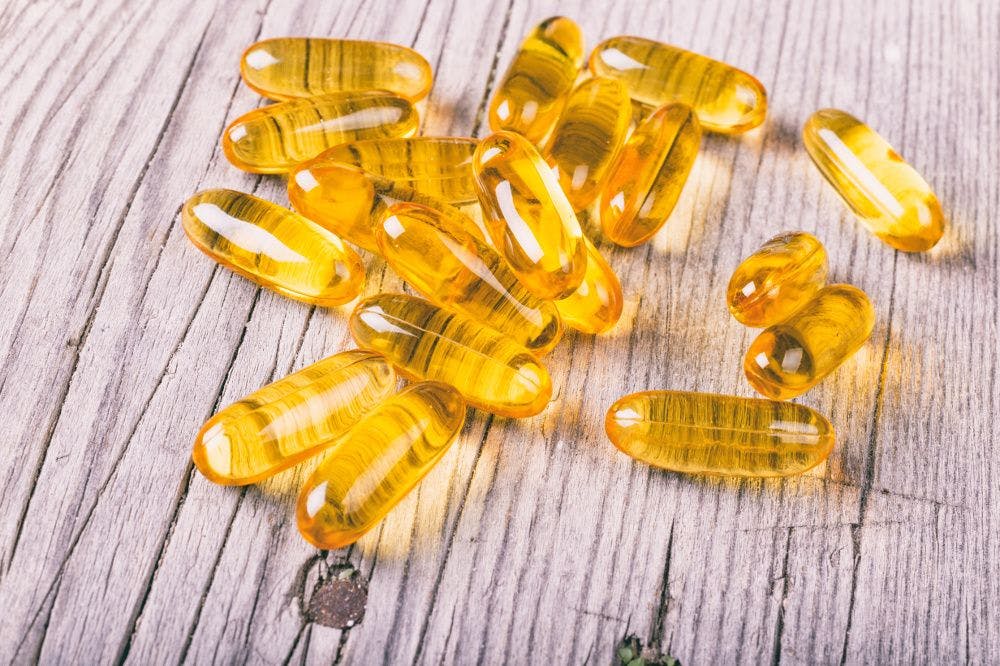2019 Ingredient trends to watch for food, drinks, and dietary supplements: Adulteration Risk
This year, ingredients and supplement categories at higher risk of adulteration include: selective androgen receptor modulators (SARMS), phenibut, tianeptine, higenamine, and certain high-profile botanical ingredients.
Photo © Shutterstock.com/anyaivanova
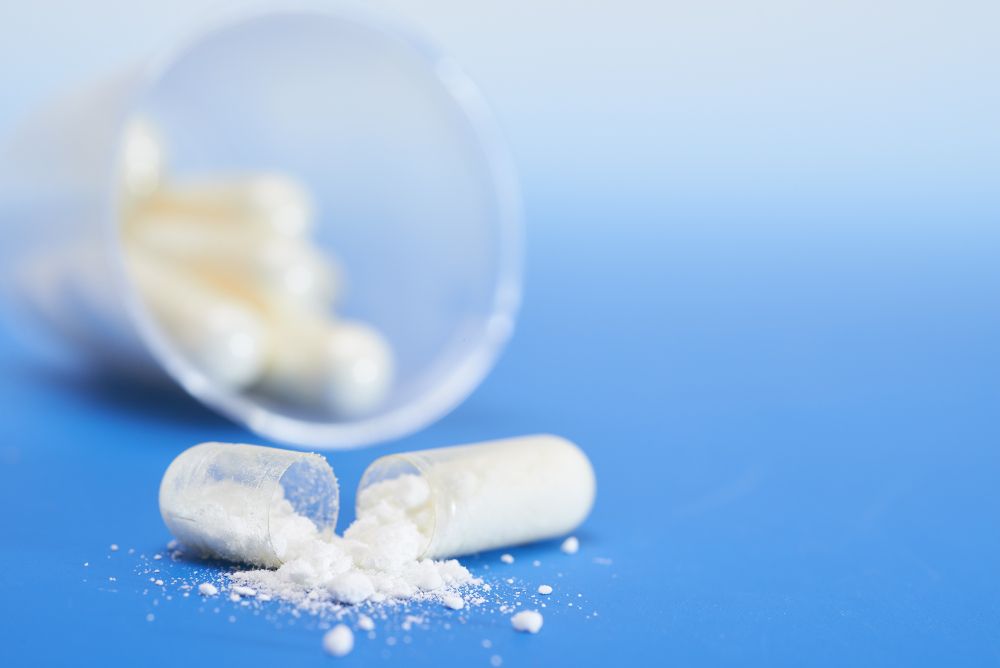
Each year, there are ingredients and supplement categories at higher risk of adulteration. This year, those top of mind include: selective androgen receptor modulators (SARMS), phenibut, tianeptine, higenamine, and certain high-profile botanical ingredients.
SARMS are synthetic steroid-like drugs mimicking the effects of testosterone and showing up in bodybuilding products in recent years. In the U.S., SARMS are not permitted in dietary supplements. SARMS are also on FDA’s radar; the agency has warned the public about the hazards of SARMS, “including potential to increase the risk of heart attack or stroke and life-threatening reactions like liver damage,” and sent warning letters to companies illegally marketing SARMS-containing products as dietary supplements. In April 2018, then-U.S. Senator Orrin Hatch (R-UT), along with Senator Sheldon Whitehouse (D-RI), introduced the SARMS Control Act of 2018 to add SARMs to the U.S. Drug Enforcement Administration’s (DEA) Schedule III list so SARMS would be regulated like anabolic steroid drugs. Dietary supplement trade associations supported this move.
Trade associations also joined together in November 2018 to warn the industry about “phenibut,” another pharmaceutical appearing, illegally, in products marketed as brain-health dietary supplements. The drug, claimed to have cognitive benefits, can lead to many adverse side effects as well as addiction.
Tianeptine, a substance some companies are selling illegally as supplement products to treat opioid abuse, also hit the radar in November 2018 after FDA issued warning letters.
Last year, NSF International (Ann Arbor, MI) identified higenamine’s use in supplement products via a clinical study1 jointly conducted by NSF researchers, Harvard Medical School, and the National Institute for Public Health and the Environment in the Netherlands. As Nutritional Outlook reported in September 2018: “Higenamine is a stimulant found in plants that has not been approved as a drug by FDA. It is permitted in dietary supplements, however, when present as a constituent of botanicals because it was grandfathered in following the passage of the Dietary Supplement Health and Education Act of 1994 (DSHEA); however, WADA [the World Anti-Doping Agency] prohibited the ingredient from sport in 2017.” Higenamine’s health risks are not well understood, and there have been reports of drug trials in which subjects experienced increased heart rate and blood pressure after taking higenamine.
The NSF et al. researchers tested a selection of supplement products on the market, including weight-management, sports, and energy supplements, and detected higenamine in what they called “unpredictable and inaccurately labeled dosages”-a problem especially for athletes looking to avoid any exposure to WADA-banned substances.
“At NSF International, we share the industry concern about adulterants like SARMS, phenibut, tianeptine, and higenamine,” John Travis, senior research scientist, NSF International, tells Nutritional Outlook.
FDA and dietary supplement industry leaders want to get unscrupulous companies and hazardous and illegal products off the market. FDA Commissioner Scott Gottlieb, MD, recently stated that the agency is reexamining its existing authority to police the dietary supplements market. In December 2018, Gottlieb gave a speech announcing that FDA has formed a new Dietary Supplement Working Group to evaluate how the agency is regulating the supplements market and whether or not the agency should seek “new authorities.” In his speech, Gottlieb underlined FDA’s concern about adulteration in the supplements market: “Some products marketed as dietary supplements contain dangerous and illegal ingredients, often without identifying them to consumers…We take seriously our obligation to protect consumers from all of these dangerous products.”
Adulteration in the botanicals market is always a concern. Adulteration happens in the botanicals market for reasons including supply chain shortages, the high cost of some botanical ingredients, and also the high volume of some ingredients, says Stefan Gafner, PhD, chief science officer for the American Botanical Council (ABC). Gafner is also technical director of the Botanical Adulterants Prevention Program (BAPP) and editor of the program’s Botanical Adulterants Monitor newsletter.
The Botanical Adulterants Prevention Program (BAPP) is a joint program of nonprofits ABC, the American Herbal Pharmacopoeia, and the University of Mississippi’s National Center for Natural Products Research. It provides critical educational resources such as BAPP’s Botanical Adulterants Monitor newsletter, Adulterants Bulletins, and Laboratory Guidance Documents that help identify suitable analytical methods for detecting adulterants and authenticating botanical materials. Gafner says BAPP recently developed an “easy-to-understand” publication about these analytical techniques geared to sales and management professionals. In November 2018, BAPP participated in a workshop held at the Health & Nutrition Week event in Germany, titled “Adulteration and Fraud of Botanical and Natural Health Ingredients: Issues, Challenges, and Prevention Tools for the Industry.” (Informa, Nutritional Outlook’s former publisher, ran this event as part of the Health Ingredients Europe trade show.)
BAPP has published 48 peer-reviewed publications so far. Over the past year alone, BAPP has shared adulteration information on a variety of botanical ingredients, including ashwagandha, maca, tea tree oil, saw palmetto berry and extract, cranberry, turmeric, boswellia resin, pomegranate, and ginkgo leaf extract.
Nutritional Outlook asked Gafner which botanical ingredients are at greatest risk of adulteration in 2019. He says: “Obviously we cannot answer this with certainty, but there are a few indicators that may point to an increased adulteration risk. Among those are supply chain shortages, high-cost botanical ingredients, and also high-volume ingredients. It is quite difficult to foresee where supply chain shortages may be an issue, since this depends on weather conditions, disease, and market success, among other factors. However, with regard to supply chain shortages, saw palmetto berry extracts could be affected by this, and possibly rhodiola root and root extracts. Other botanical ingredients that fall into this category are those that have seen a fairly dramatic increase in sales over the past years, such as extracts of turmeric, boswellia, ashwagandha, or elderberry.”
“Botanical ingredients where the raw material is relatively expensive, such as bilberry extract, cordyceps, or cranberry extracts with high contents of proanthocyanidins, are regularly among those where we see adulteration issues, just because of the financial incentive. The same is true for many essential oils. Ginkgo and turmeric are some of the high-volume commodities where adulteration has persisted,” Gafner concludes.
NSF’s Travis also highlights ginkgo concerns, noting that the U.S. Government Accountability Office issued a report last November, stating that in testing it had done on two ginkgo products, the products contained no actual Ginkgo biloba and had been adulterated with other “unknown, substitute” ingredients.
“With ginkgo, this continues to be a problem of intentional adulteration due to the financial advantage of adding cheaply sourced ingredients, despite all of the publicity it has received over the years,” Travis says. “Ginkgo will continue to be adulterated because of the tempting economic incentives driven by the use of cheaply sourced adulterant ingredients.”
Gafner says he’s “optimistic” that educating the public about adulteration will make a difference. He says, “With the raising awareness of the problems, I am optimistic that the picture will improve over the next year.”
BAPP is advising manufacturers what to do if raw materials are defective. Last year, BAPP released a draft of a standard operation procedure guideline called “Best Practices SOP for the Disposal/Destruction of Irreparably Defective Articles.” The SOPs advise companies when and how to destroy raw materials that are “irreparably defective” so that companies do not return irreparably defective ingredients to the supplier, who could then resell them to someone else. Mark Blumenthal, ABC’s founder and executive director and BAPP’s director, says that public comments on the draft SOPs are now in review. “Eventually, we hope to have a tentatively final or perhaps even final document to share with responsible members of the herb and dietary supplements industry (and other industries) in March,” Blumenthal says.
Michael Levin, founder of Health Business Strategies LLC, who was also the primary author of the SOPs and who is BAPP’s chief consultant on the SOPs, says that part of the review is related to potential language that could, ultimately, be included in contracts between a supplier and a buyer as a best practice. Levin calls this aspect “mission critical” and “at the very heart of this project.” He continues: “It defines the agreements between supply chain partners as they relate to quality, adulteration, dispute resolution, and the like. In contrast, the [current] draft SOP merely outlines a proposed procedure for implementing the legal agreements contained within the supply contract. Perhaps most importantly, and most relevant to your readers, the contract language mandates that if an ingredient/lot is irreparably defective and cannot be lawfully remediated for any use anywhere, that the parties agree to lawfully destroy that ingredient lot. This assures that this lot can never be resold into the supply chain. This is a vast improvement over the current situation.”
And back to the overall risk of adulteration in the market, NSF’s Travis says that, as in previous years, categories at highest risk remain the weight management, sports, and sexual enhancement markets. “Consumers have increased use of these products over the years, especially in the weight-loss category,” he says. “This has resulted in greater revenue for brands and provided an incentive for unscrupulous brands to adulterate their products with pharmaceuticals, untested stimulants, and other substances, which may not have any data to support safe use."
2019 Ingredient Trends to Watch for Food, Drinks, and Dietary Supplements:
- Adulteration Risk
References:
- Cohen PA et al. “The stimulant higenamine in weight loss and sports supplements.” Clinical Toxicology. Published online ahead of print September 6, 2018.
